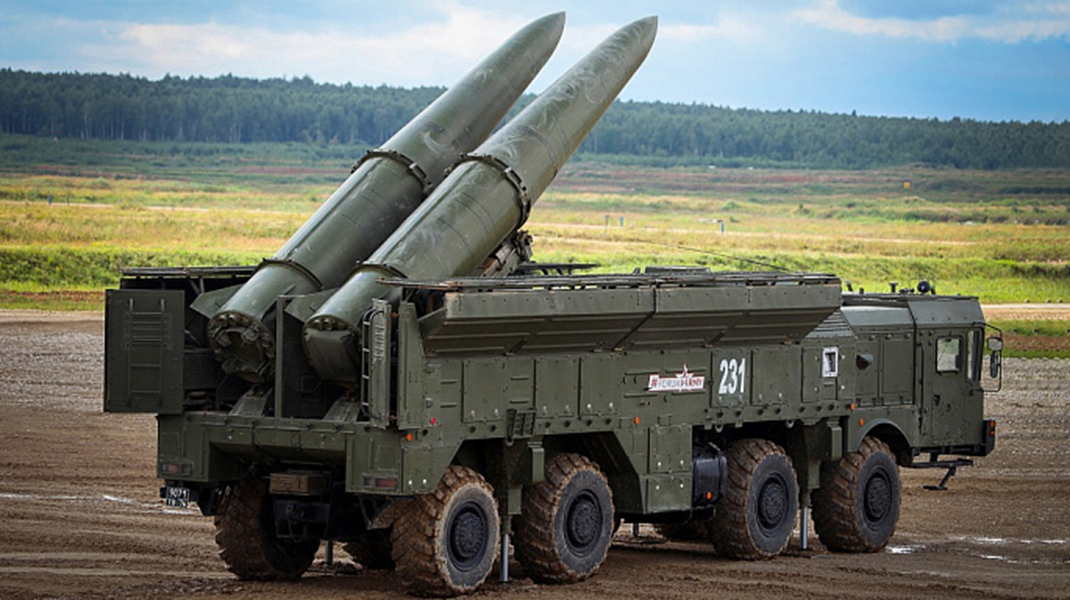Iskander-M: Russia’s Powerful Tactical Ballistic Missile System
Why in the news?
The Iskander-M missile system remains a critical component of Russia’s modern warfare strategy, showcasing high precision and advanced defense evasion capabilities, with recent focus on its strategic role amid evolving global security challenges.
Overview of Iskander-M
- The Iskander-M is a short-range ballistic missile system developed by Russia for precise tactical strikes on strategic targets.
- It officially entered service in 2006 and was first used during the 2008 Georgia conflict.
- The system is highly mobile and supports the deployment of various missile types for versatile operations.
Key Specifications
- Length: 3 meters; Diameter: 0.92 meters; Launch Weight: 3,750 kg
- Maximum Range: 500 km
- Payload Capacity: 480–700 kg, supporting both conventional and nuclear warheads
- Speed: Up to Mach 7, with altitudes exceeding 30 miles
- Equipped with maneuverable reentry vehicles (MaRV) and decoys to evade enemy missile defenses
Variants and Strategic Importance
- Iskander-E: Export version with a reduced range of 280 km
- Iskander-K: Introduced in 2007, featuring the R-500 cruise missile with a similar range
- The Iskander-M remains a crucial part of Russia’s missile arsenal, enhancing its strategic deterrence capabilities through advanced technology and adaptability.





